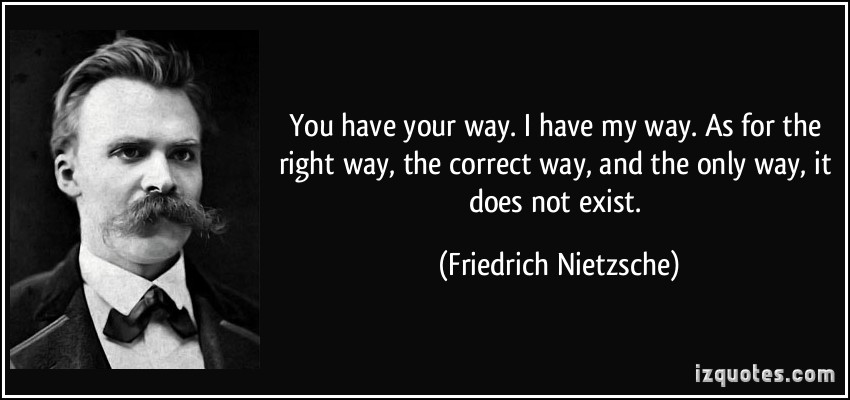People trouble me, sometimes. Why are people so judgmental, I often find myself wondering? Perhaps, it is because a judgmental heart lacks introspection. I think that’s it. Yes, lacking introspection!
One of the most troubling trends I see within the Muslim community is the amount of hatred and suspicion towards Muslims who adopt different approaches and interpretations of Islam. With the Takfeeri ideology (ex-communication) on a rise, nearly every Muslim considers himself to be “rightly guided” and others, even if they differ on minor issues, to be “deluded by the devil” or a “Fitnah”, greatly hindering co-existence and mutual respect between Muslims. Sectarianism, which for this very reason has been severely discouraged in the Quran, has destabilized the Muslim community from within, resulting in every group happy with their version while looking down upon others.
We must realize that Islam is not a monolith, and that it’s impossible for nearly 2 billion Muslims to share the same interpretation of it. There is no “true” Islam, I would argue. Rather, what we have are Islams. At best, the “true” Islam, in my opinion, is relative to the person and is the interpretation that allows you to grow and evolve the most as a person, provided—a very important distinction to make–provided that the core of the Quran is not tempered with. And the Quran makes the case for this on the basis of the following verses:
“Who listen to the Word and follow the best of it. Those are the ones Allah has guided, and those are people of understanding.” Quran, 39:18
“And follow the best of that which is sent down to you from your Lord, before the torment comes on you suddenly while you perceive not!” Quran, 39:55
These verses, which definitely demand more attention and pondering from the mainstream Muslims; speak against a monolithic, institutionalized Islam as they ask the reader to follow the “best” from what is revealed. If there was supposed to be one “official interpretation”, there would absolutely be no point in asking us to follow the best therein. How do you follow the best of what’s already best, anyways?
Most people are unaware of this, but the Quran itself talks of a plurality of paths to Islam:
Through this Book, God guides to paths of Islam (peace), those who seek His Approval. He brings them out of darkness into the light of His grace, and guides them to the straight path. Quran, 5:16
This is because God acknowledges our diversity, calling it one of His Signs (30:22); and unlike the clergymen, does not want us all to be identical robots.
Combining these points together, the Quran provides a comprehensive rebuttal to the idea of there being a “true” Islam that is supposed to be shared by all of its adherents.
Dealing with differences
Naturally, when we talk of nearly 2 billion Muslims, there are going to be theological differences. What matters though, is how we deal with these differences. We may have intellectual disagreements within the diverse Islamic thought, but we must not foster hate towards this diversity. Either we can acknowledge our differences and embrace them for the common good, focusing rather on the fundamental values that Islam teaches us, or we could continue with the “my way or the highway” ideology that is the main cause of sectarianism, again – which is severely discouraged in the Quran. (I delve on this further here)
Not being honest and true to ourselves, I believe, is at the root of sectarianism. We condemn others for their views, knowing full well that there was a time when we, ourselves, didn’t know what we know today. The problem, then, is that we’re overly critical of others, and fairly passive of ourselves, when it should totally be the other way around! We are quick to judge others because we only see things from one perspective–our perspective–which is limited and biased. We don’t try to analyze the reasons why people are the way they are because that is a hard task, requiring effort and broad mindedness.
Now, there is this weird idea people have that being blunt is the same as being provocative, insulting, and demeaning. Some people, who like to think of themselves as being “straight-forward” believe that speaking “truth” to a person with a different point of view doesn’t require you to be polite, understanding, and reasonable. No, these characteristics are seen as attempts of “sugar-coating” or being “diplomatic” (as if that’s a bad thing). Well, guess what? Even if you’re right, no one would bother listening to you sincerely if you come off as snobbish and condescending. Doesn’t that negate the whole point of dialogue? If you are so keen on spreading your truth, don’t be in it to praise your ego and making a fool out of others. Because ultimately, you’re only fooling yourself!
There are some ethics of dialogue, and the Quran lays them down most wonderfully:
Invite to the path of your Lord with wisdom and good advice, and argue with them in the best possible manner. Your Lord is fully aware of who is misguided from His path, and He is fully aware of the guided ones. Quran, 16:125
Socrates once said, “When the debate is lost, slander becomes the tool of the loser.” In other words, when there are no intellectual points left to make, people resort to ad-hominem attacks to get the impression of superiority. Again and again, we must remind ourselves the purpose of Islam. It is not to look down upon others, but to bring yourself up. It is not to criticize others, but to prime yourself. Islam seeks to suppress the ego, not to magnify it. In fact, the Quran repeatedly reminds the reader that he is not sent as a “guardian” or “watcher” over the people (6:107, 88:22). Why then, is the focus not on ourselves, but on others?
Conclusion
Gradual as it was, I realized over the course of my journey as a Muslim that there are many spiritual paths leading to the same destination: peace and serenity.
Just because I disagree with X and Y on some points, does not mean that I discount their spiritual journey as “invalid”, or that I start calling them other derogatory labels. The important thing, rather, is that you keep on treading the path you have chosen for yourself, growing with each step. Growth should be the priority, not the means by which you grow. Yes, we can all help in correcting each other by having a dialogue on a variety of theological and spiritual aspects, but the only person who’s utterly wasting his time is he who himself won’t move, but will block the way of others; advising them that they’ve taken the wrong path.
As the Quran beautifully puts it:
Each of you chooses the direction to follow; then strive together toward all that is good. Whatever stand you take, God will bring you all together. Indeed, God is Able to do all things. Quran, 2:148
A monolithic Islam? Forget about it!
An inclusive and pluralistic Islam? Yes! And much more Islam will come to you that way!
*If you liked this post, please consider subscribing to our blog and sharing it with your friends!















